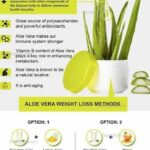Juice
How Long Is It For Aloe Vera Juice To Work

It is commonly believed that patience is a virtue, but when it comes to our health, many people are eager to see results quickly. This is especially true for natural remedies like aloe vera juice.
Aloe vera has been used for centuries for its medicinal properties, and in recent years, aloe vera juice has become a popular health drink. But how long does it take for aloe vera juice to work? Let’s explore the factors that affect its effectiveness and the timeframe for improvement.
As the saying goes, ‘good things come to those who wait,’and the same can be said for aloe vera juice. While some people may experience immediate relief from certain health issues, others may need to consistently use aloe vera juice for a longer period to see results.
It’s important to understand that aloe vera juice is not a magic cure-all, but rather a supplement that can support our overall health and wellness. In this article, we’ll delve into the benefits of aloe vera juice, the quality of the product, dosage, individual health conditions, and other factors that can affect its effectiveness.
So, sit tight, and let’s explore the world of aloe vera juice together.
Key Takeaways
- The timeframe for aloe vera juice to work varies based on factors such as age, health condition, and dosage.
- Progress may not be immediately noticeable, so it is important to be patient and consistent while monitoring changes in digestion, inflammation, energy levels, and skin health.
- Aloe vera juice is not a magic cure-all, but it can be a supplement for overall health and wellness, providing long-term benefits such as improved immune system and reduced risk of chronic diseases.
- Precautions should be taken when consuming aloe vera juice, such as following recommended intake guidelines, avoiding excessive consumption to prevent adverse effects like diarrhea, and consulting with a healthcare professional if taking certain medications or during pregnancy and breastfeeding.
Benefits of Aloe Vera Juice
Looking for a natural way to boost your immune system and improve digestion? Aloe vera juice is the answer! Aloe vera is a succulent plant that’s been used for centuries for its healing properties.
The juice extracted from its leaves contains numerous vitamins, minerals, and antioxidants that can help improve your overall health. One of the benefits of aloe vera juice is its ability to improve digestive health. It contains enzymes that help break down food, reducing bloating and constipation.
Aloe vera juice also has anti-inflammatory properties that can help soothe the digestive system, making it a great natural remedy for those with digestive issues. Additionally, aloe vera juice can help boost the immune system, thanks to its high levels of vitamins and minerals. It can help fight off harmful bacteria and viruses, keeping you healthy and strong.
When it comes to aloe vera juice, quality matters. The best aloe vera juice is made from fresh, organic aloe vera plants and contains no added sugars or preservatives. Look for a brand that’s transparent about their production methods and ingredients. With the right quality, aloe vera juice can provide numerous health benefits and improve your overall well-being.
Quality of Aloe Vera Juice
You may be pleasantly surprised by the difference in effectiveness between high-quality aloe vera juice and lower quality options. The purity of aloe vera juice depends on the sourcing and processing methods used by the manufacturer. High-quality aloe vera juice should contain as close to 100% pure aloe vera gel as possible, with minimal additives. The taste and texture of high-quality aloe vera juice will be pleasant, with a fresh and slightly sweet flavor. Lower quality options may have a bitter taste and a slimy texture, which can make them difficult to consume.
When considering the health benefits and risks of aloe vera juice, it is important to be mindful of dosage and administration. Consult with a healthcare professional before consuming aloe vera juice to determine the appropriate amount for your individual needs. Brand and price comparison can also be helpful in determining the quality of aloe vera juice.
For those who prefer a more natural approach, DIY aloe vera juice can be made at home. Aloe vera juice can be used in various ways, such as for skincare, haircare, and digestion. With such a versatile range of uses, it’s no wonder that aloe vera juice has become increasingly popular in recent years.
Moving on to dosage, it’s important to note that aloe vera juice should be consumed in moderation and according to recommended guidelines.
Dosage
If you’re worried about taking too much Aloe Vera juice, don’t be – just remember to start small and gradually increase your intake to ensure your body can handle it. The optimal dosage of Aloe Vera juice varies from person to person, depending on several factors such as age, weight, and overall health. Generally, it is recommended to start with a small dose of 30ml (1 oz) per day and gradually increase the intake to 60ml (2 oz) per day.
To help you keep track of your Aloe Vera juice intake, here’s a table of the recommended dosage and frequency of consumption:
| Age Group | Dosage | Frequency |
|---|---|---|
| Adults | 30-60ml | Once daily |
| Children | 15-30ml | Once daily |
| Infants | 5-15ml | Once daily |
It is important to note that consuming Aloe Vera juice in excess can lead to adverse effects such as abdominal pain, diarrhea, and dehydration. Therefore, it is crucial to consult with a healthcare professional before incorporating Aloe Vera juice into your diet, especially if you have any pre-existing health conditions. In the next section, we will discuss how individual health conditions can affect the effectiveness of Aloe Vera juice.
Individual Health Condition
When considering incorporating Aloe Vera juice into your diet, it’s important to understand how your individual health condition can impact its effectiveness. Aloe Vera juice can provide numerous health benefits, including reducing inflammation, aiding digestion, and boosting the immune system. However, the effectiveness of Aloe Vera juice can be influenced by various factors specific to an individual’s health condition.
Certain dietary restrictions may impact the effectiveness of Aloe Vera juice. For example, individuals with a sensitive stomach or digestive issues may need to start with a lower dosage and gradually increase it over time. Additionally, those who follow a strict vegan or vegetarian diet may need to ensure that the Aloe Vera juice they consume does not contain any animal-derived ingredients.
Aloe Vera juice may interact with certain medications, such as blood thinners or diabetes medications. Therefore, individuals who take medication regularly should consult with their healthcare provider before incorporating Aloe Vera juice into their diet.
It’s important to consider these factors when incorporating Aloe Vera juice into your diet to ensure its effectiveness. In the next section, we will discuss the difference between immediate relief and consistent use of Aloe Vera juice.
Immediate Relief vs. Consistent Use
Considering the difference between immediate relief and consistent use of Aloe Vera juice can provide insight into how it can best be incorporated into your health routine.
Immediate effects of the juice can be noticed after a few days of regular use, such as reduced inflammation and improved digestion. However, long-term benefits can only be experienced through consistent use, which helps to boost the immune system, improve skin health, and reduce the risk of chronic diseases.
The frequency of usage and dosage accuracy also play a crucial role in determining the effectiveness of Aloe Vera juice. It’s essential to follow the recommended dosage to avoid adverse effects such as diarrhea and electrolyte imbalances. Consistency in usage also helps to maintain the desired results and prevent relapse.
Therefore, to experience the full benefits of Aloe Vera juice, it’s recommended to use it consistently as per the recommended dosage.
Factors that affect effectiveness such as an individual’s health condition, purity of the juice, and the method of extraction will be discussed in the next section.
Factors That Affect Effectiveness
As I researched the effectiveness of aloe vera juice, I found that there are several factors that can affect how well it works.
Firstly, age is an important factor to consider. As we get older, our bodies may not absorb nutrients as well as they used to, which can impact the effectiveness of aloe vera juice.
Secondly, lifestyle habits such as diet and exercise can also play a role in how well aloe vera juice works.
Lastly, overall health is another important factor to consider. If you have underlying health conditions, it may take longer for aloe vera juice to work, or it may not work as well as it would for someone who’s in good health.
Age
Believe it or not, aloe vera juice can work wonders for people of all ages, when it comes to natural remedies for skin care. Whether you’re a teenager struggling with acne or an elderly person dealing with wrinkles, aloe vera juice can help improve your skin’s overall health and appearance.
Here are some reasons why age is not a factor when it comes to the benefits of aloe vera juice:
-
Aloe vera contains antioxidants that help fight off free radicals, which can damage skin cells and lead to premature aging.
-
Aloe vera can help soothe skin irritation and inflammation, which can be beneficial for people of all ages, especially those with sensitive skin.
-
Aloe vera can help hydrate and moisturize the skin, which can be especially helpful for older individuals who may have drier skin.
-
Aloe vera can also improve collagen production, which is important for maintaining skin elasticity and reducing the appearance of fine lines and wrinkles.
As important as age is when it comes to skin care, lifestyle also plays a crucial role in achieving healthy and radiant skin.
Lifestyle
Your daily habits and routines can greatly impact the health and appearance of your skin, making lifestyle choices just as important as age when it comes to achieving a glowing complexion. Adopting healthy habits and a daily routine that promotes skin health can help you achieve better results when using aloe vera juice. Here are some lifestyle choices you can make to improve your skin:
| Healthy Habits | Benefits |
|---|---|
| Hydrating regularly | Helps to flush out toxins and prevent dryness |
| Eating a balanced diet | Provides essential nutrients for healthy skin |
| Exercising regularly | Increases blood flow and promotes healthy skin cells |
| Getting enough sleep | Allows the skin to repair and regenerate |
| Avoiding smoking and excessive alcohol consumption | Reduces inflammation and damage to skin cells |
Incorporating these habits into your daily routine can help to support the health of your skin and improve the effectiveness of aloe vera juice. It is important to remember that skin health is not just about what you put on your skin, but also about how you treat your body overall.
Transitioning to the subsequent section about overall health, it is important to recognize that a healthy lifestyle goes beyond just achieving a glowing complexion. Taking care of your overall health can improve your quality of life and reduce the risk of chronic diseases.
Overall Health
Improving your overall health can have a positive impact on your skin, as well as your overall quality of life. One way to achieve this is by incorporating nutritional supplements and maintaining a regular fitness routine.
Nutritional supplements such as vitamins C, E, and A, as well as zinc, have been found to improve skin health by reducing inflammation and promoting collagen production. Additionally, regular exercise has been shown to improve skin health by increasing blood flow and promoting detoxification.
Incorporating these lifestyle changes into your routine can have a positive impact on your skin health, but it’s important to note that these changes take time to show results. It’s not a quick fix, and it’s important to stick to these lifestyle changes for a sustained period of time to see improvement.
In the following section, we’ll discuss how long it takes for aloe vera juice to work and what to expect during this process.
Timeframe for Improvement
When starting to drink aloe vera juice regularly, it may take some time before you start seeing a noticeable difference – like Rome, results won’t be built in a day. The improvement timeframe for aloe vera juice to work varies from person to person and depends on several factors. Aloe vera juice can take anywhere from a few days to several weeks to show noticeable changes in overall health.
To give you a better understanding of what to expect when starting to drink aloe vera juice, here is a table that shows the timeframe for improvement based on different factors:
| Factor | Timeframe for Improvement |
|---|---|
| Age | Longer for older individuals |
| Health Condition | Longer for individuals with chronic conditions |
| Dosage | Quicker with higher dosages |
It’s important to keep in mind that progress may not be immediately noticeable, so it’s important to be patient and consistent with taking aloe vera juice. In the next section, we will discuss how to monitor progress and adjust dosages accordingly.
Monitoring Progress
Ascertaining progress can be made easier by regularly monitoring changes in overall health. When starting to consume aloe vera juice, it’s important to take note of any changes in how you feel. This can include improvements in digestion, decreased inflammation, and a boost in energy levels.
Tracking changes in these areas can help you determine if aloe vera juice is working for you and if you should continue consuming it. Measuring results can also be done by taking note of any changes in skin health. Aloe vera juice is known to improve skin health by reducing inflammation, promoting hydration, and boosting collagen production.
By tracking any changes in the appearance and texture of your skin, you can determine if aloe vera juice is having a positive effect on your body. Moving forward, it’s important to be aware of any precautions and side effects when consuming aloe vera juice.
Precautions and Side Effects
It’s crucial to be mindful of potential side effects and take necessary precautions when consuming aloe vera juice to ensure your well-being. While aloe vera juice is generally safe for consumption, it’s important to remember that it’s a laxative and can cause diarrhea if taken in large quantities. Therefore, it’s recommended to start with a small dose and gradually increase it over time.
Here are some other potential risks associated with aloe vera juice consumption that you should be aware of and take precautions against:
-
Hypoglycemia: Aloe vera juice may lower blood sugar levels, so individuals with diabetes or hypoglycemia should be cautious when consuming it.
-
Allergic reactions: Some individuals may be allergic to aloe vera juice, which can cause skin irritation or even anaphylaxis.
-
Medication interactions: Aloe vera juice can interact with certain medications, such as diuretics or diabetes medications, so it’s important to consult with a healthcare professional before consuming it.
-
Pregnancy and breastfeeding: There is limited research on the safety of aloe vera juice during pregnancy and breastfeeding, so it’s best to avoid it or consult with a healthcare professional before consuming it.
Overall, it’s recommended to consume aloe vera juice in moderation and follow the recommended intake guidelines to avoid potential risks. As with any supplement or medication, it’s important to consult with a healthcare professional before starting to consume it.
Frequently Asked Questions
Can aloe vera juice be consumed by pregnant women?
As a pregnant woman, I am cautious about what I consume. Aloe vera juice can be beneficial, but it’s important to consider potential risks. It’s recommended to consult with a healthcare provider for the appropriate dosage and to ensure safe pregnancy consumption.
Is it safe to consume aloe vera juice on an empty stomach?
Consuming aloe vera juice on an empty stomach may offer benefits such as improved digestion and hydration. However, it may also lead to side effects such as abdominal cramps and diarrhea. It’s best to consult with a healthcare professional before adding it to your diet.
Can aloe vera juice be used topically for skin conditions?
Aloe vera juice can be beneficial when used topically for skin conditions like burns and psoriasis. However, precautions should be taken as it may cause skin irritation and allergic reactions. Consult a healthcare professional before use.
Will aloe vera juice help with weight loss?
Aloe vera juice may aid weight loss by reducing inflammation and promoting digestion. Dosage recommendations vary, but starting with a small amount and gradually increasing is advised. Consult a healthcare professional before use.
Is it necessary to refrigerate aloe vera juice after opening?
Yes, it’s necessary to refrigerate aloe vera juice after opening. This will help prolong its shelf life and prevent the growth of harmful bacteria. Storing aloe vera juice at room temperature can lead to spoilage.
Conclusion
After researching and considering all the factors that can affect the effectiveness of aloe vera juice, it’s clear that it can take some time before one notices any significant improvements. However, consistent use and monitoring progress can lead to long-term benefits.
It’s like planting a seed in a garden and patiently waiting for it to grow. You need to water it regularly, protect it from harsh weather conditions, and give it enough sunlight to thrive. Similarly, aloe vera juice needs to be taken in the right dosage, from a reputable source, and with consideration of one’s individual health condition.
It may not provide immediate relief, but with patience, it can lead to a healthier and happier life.
In conclusion, aloe vera juice is a powerful natural remedy that can offer numerous benefits. However, it’s important to be patient and consistent with its use. With the right approach, aloe vera juice can be a valuable addition to one’s health routine, providing long-term benefits for both the body and mind.
Ilana has been a vegan for over 10 years. She originally made the switch for health reasons, but soon found herself becoming more and more passionate about the ethical and environmental implications of a vegan lifestyle. Ilana is the author of The Graceful Kitchen, a blog all about veganism. She loves to cook up delicious and nutritious vegan meals, and share her recipes with others who are interested in leading a cruelty-free life. Ilana is also a strong advocate for using whole foods as the foundation of a healthy diet, and believes that going vegan is one of the best ways to achieve this.
Juice
How To Freeze Peaches Without Lemon Juice

As a lover of all things fruity and sweet, I eagerly look forward to peach season every year. There’s nothing quite like biting into a juicy, ripe peach on a hot summer day. However, sometimes I end up with more peaches than I can eat before they go bad. That’s when freezing them comes in handy, preserving the taste of summer for months to come.
However, many recipes for freezing peaches call for lemon juice, which can alter the natural flavor of the fruit. As someone who wants to enjoy the pure taste of peaches, I’ve developed a method for freezing them without using lemon juice.
In this article, I’ll share my step-by-step process for freezing peaches without any added ingredients, so you can enjoy the full, sweet flavor of summer peaches all year round.
Key Takeaways
- Peeling and slicing peaches makes them easier to use
- Blanching peaches can make peeling easier
- Too much sugar syrup can affect the texture and taste of peaches
- Frozen peaches can last up to 6 months
Choosing the Right Peaches
You’ll want to make sure you pick the juiciest, most flavorful peaches – they’ll make all the difference in your frozen treats!
When it comes to peach ripeness, you’ll want to choose peaches that are fully ripe, but not overripe. Look for peaches that are slightly soft to the touch, with a sweet aroma. Avoid peaches that are hard or have green patches, as these aren’t yet ripe enough to use.
Another important factor to consider is the flavor profile of the peach. Different varieties of peaches have varying levels of sweetness and tartness, so choose a variety that suits your taste buds.
For example, if you like your peaches on the sweeter side, look for varieties like the Elberta or O’Henry. If you prefer a more tart flavor, the Red Haven or Loring may be better options.
Once you’ve chosen your perfect peaches, it’s time to move on to preparing them for freezing.
Preparing Your Peaches
Before freezing your peaches, it’s important to prepare them properly.
First, I like to wash and dry the peaches thoroughly to remove any dirt or debris.
Then, I use a peeler to remove the skin and slice the peaches into pieces that are the perfect size for my recipes.
These steps ensure that my frozen peaches are clean, easy to use, and ready to be enjoyed whenever I want.
Washing and Drying
After picking fresh peaches, it’s important to gently wash and pat them dry before beginning the freezing process. This step is crucial in ensuring that the peaches remain fresh and free from any dirt or debris.
Here are some tips for washing and drying your peaches:
-
Importance of ripeness: Make sure your peaches are fully ripe before washing them. This will ensure that they have the best flavor and texture when you freeze them.
-
Drying techniques: To dry your peaches, gently wipe them with a clean cloth or paper towel. Avoid using a harsh scrubbing motion as this can damage the delicate skin of the peaches.
-
Air drying: Alternatively, you can also air dry your peaches by placing them on a clean towel or rack and leaving them to dry naturally. This method may take longer but it’s a great way to avoid any damage to the peaches.
Once your peaches are washed and dried, you’re ready to move on to peeling and slicing them for freezing.
Peeling and Slicing
As you sink your teeth into a juicy peach, imagine how satisfying it would be to slice and peel them for freezing. Before you start slicing, it’s important to peel your peaches. You can use a vegetable peeler or a knife to remove the skin. If the peach is ripe, the skin should come off easily. If you’re struggling, try blanching the peaches to loosen the skin.
Blanching is a technique that involves boiling the peaches for a short period of time and then immediately transferring them to an ice bath to stop the cooking process. This will cause the skin to loosen, making peeling much easier.
Once you have peeled your peaches, it’s time to slice them. You can slice them into wedges or cubes, whatever works best for you. It’s important to note that frozen peaches tend to be a bit softer than fresh ones, so you may want to slice them a bit thicker than you normally would.
If you don’t want to use the blanching technique, there are other freezing alternatives. You can simply slice and freeze the peaches as they are, or you can add a bit of sugar or ascorbic acid to help preserve their color and texture.
With your peaches sliced and ready to go, it’s time to move on to treating them before freezing.
Treating Your Peaches
First, you’ll need to wash your peaches thoroughly to remove any dirt or debris. Once your peaches are clean, you can start treating them.
Blanching peaches is a great way to remove the skin without losing any of the fruit’s flavor. To do this, bring a large pot of water to a boil and drop in your peaches for about 30 seconds. Use a slotted spoon to remove the peaches, and immediately transfer them to a bowl of ice water. This will stop the cooking process and make it easier to remove the skin. Once the peaches are cool enough to handle, you can easily peel off the skin with a knife or your fingers.
After blanching and peeling your peaches, it’s time to treat them with a sugar syrup. This will help preserve the peaches and keep them from browning. To make the syrup, combine equal parts sugar and water in a saucepan and heat until the sugar dissolves. Allow the syrup to cool completely.
Once the syrup is cool, you can add your peaches and let them soak for about 10 minutes. This will give them a nice sweet flavor and help keep them fresh. Now that your peaches are blanched, peeled, and treated with sugar syrup, you’re ready to freeze them.
Note: Avoid using too much sugar syrup as it can affect the texture and taste of the peaches.
Freezing Your Peaches
Now that we have prepared our peaches, it’s time to freeze them without using lemon juice. To achieve this, we will be using a sugar substitute and blanching the fruit. The sugar substitute will help preserve the color and flavor of the peaches, while blanching will help remove the skin easily.
To start, let’s prepare the sugar substitute. In a mixing bowl, combine 1 cup of sugar substitute with 1 cup of water and stir until the sugar substitute is dissolved. Next, we will blanch the peaches. Bring a large pot of water to a boil and carefully place the peaches in the boiling water for 30 seconds to 1 minute. Remove the peaches from the boiling water and immediately transfer them to a bowl of ice water to stop the cooking process. Once the peaches have cooled, remove the skin and pit them. Finally, slice the peaches into desired sizes and place them in a freezer-safe container. Pour the sugar substitute solution over the peaches until they are completely covered and freeze them for up to 6 months.
With our peaches now frozen, it’s time to move on to the final step of storing them properly.
Storing Your Frozen Peaches
When it comes to storing your frozen peaches, there are a couple of key points to consider. First, it’s important to choose the right container to store your peaches in. I like to use freezer-safe bags or containers with tight-fitting lids to keep my peaches fresh and prevent freezer burn.
Second, labeling your containers is crucial to avoid confusing your peaches with other frozen fruits or vegetables. I always make sure to write the date and contents on each container so I can easily identify what’s inside and when I froze it.
Containers
To ensure your frozen peaches stay fresh, it’s important to choose the right container. Mason jars are a great option because they’re sturdy, airtight, and reusable. They won’t leak, which helps keep your freezer clean. Make sure to leave some headspace at the top of the jar to allow for expansion during freezing. This will prevent your jars from cracking or breaking in the freezer.
Another option for freezing peaches is to use plastic bags. Make sure to choose freezer-safe bags that are thick and durable. These bags will protect your peaches from freezer burn and prevent any leaks. When filling the bags, try to remove as much air as possible before sealing. This will help prevent ice crystals from forming and keep your peaches fresh for longer.
Now that you have chosen the right container for your frozen peaches, it’s important to label them with the date and contents. This will help you keep track of how long they’ve been in the freezer and make it easier to find them when you need them.
In the next section, we’ll discuss the importance of labeling your frozen peaches in more detail.
Labeling
Labeling your frozen peaches is essential to ensure that you don’t end up with a bunch of anonymous fruits in your freezer. When it comes to labeling tips, use a permanent marker to write the date of freezing, the quantity, and any other relevant information. This way, you’ll know how long the peaches have been in your freezer and when they’ll expire.
It’s also helpful to include the type of peaches you have frozen, especially if you have multiple varieties. The importance of storage date cannot be overstated. Not only does it help you keep track of how long the peaches have been frozen, but it also helps you plan your meals accordingly.
You can easily determine which bags or containers of peaches need to be used up first based on the date of freezing. And when it comes to thawing your peaches, you’ll have a better idea of how long they’ve been frozen and whether they’re still good to eat. Speaking of thawing, let’s discuss the next step in the process.
Thawing Your Peaches
When thawing my frozen peaches, I usually have two options: refrigeration or room temperature. If I plan ahead, I prefer to thaw my peaches in the refrigerator overnight. This method allows for a slow, even thaw and results in firmer peaches with less juice.
I’ve found that when I thaw peaches at room temperature, they tend to become mushy and lose their texture. So, I always opt for refrigeration when possible. Plus, it’s a hands-off approach that requires minimal effort on my part.
Refrigeration
If you’re short on time, the quickest way to preserve your peaches is by refrigerating them. This method is perfect if you plan to use the peaches within a few days. Storing peaches in the fridge will slow down the ripening process, which means they’ll stay fresh for longer. Here’s a table to help you better understand the different storing options and the shelf life of peaches:
| Storing Option | Shelf Life |
|---|---|
| Room Temperature | 1-2 Days |
| Refrigeration | 3-5 Days |
| Freezing | 8-12 Months |
As you can see, refrigeration can extend the shelf life of your peaches by a few more days. However, if you plan to keep your peaches for an extended period, it’s better to freeze them. In the next section, I’ll explain how to freeze peaches without lemon juice.
Room Temperature
Sometimes, you just can’t resist the sweet scent of a fresh peach sitting on your kitchen counter at room temperature. And the good news is, room temperature storage can actually benefit your peaches!
When kept at room temperature, peaches continue to ripen and become softer and juicier. Plus, they’ll retain more of their natural flavor and nutrients.
But there are some best practices for handling room temperature peaches. First, make sure to keep them out of direct sunlight or heat sources, which can cause them to spoil more quickly. Second, inspect them regularly for any signs of bruising or mold, and remove any damaged fruit immediately. And finally, consume them within a few days of purchase for the best taste and texture.
Now that you’ve enjoyed your fresh peaches at room temperature, it’s time to freeze the rest for later use.
Using Your Frozen Peaches
Now that I’ve got my peaches frozen, I can’t wait to start using them in my baking, smoothies, and sauces.
When it comes to baking, frozen peaches are a great addition to pies, cobblers, and muffins.
For smoothies, I like to blend them with some yogurt and honey for a delicious and healthy treat.
Lastly, frozen peaches can also be used to make a sweet and tangy sauce that goes well with pork or chicken dishes.
Baking
You can easily add frozen peaches to your favorite baking recipes, giving your treats a sweet burst of flavor that will knock your socks off. Whether you’re making peach cobbler, peach pie, or peach muffins, frozen peaches are a great way to infuse your baked goods with the taste of summer all year round.
To help you get started, here are some recipe variations you can try with your frozen peaches:
| Recipe | Variation |
|---|---|
| Peach cobbler | Add crumbled graham crackers to the topping for a crunchy texture |
| Peach pie | Mix in some cinnamon and nutmeg for a warm, spicy flavor |
| Peach muffins | Top with a streusel made from brown sugar, flour, and butter |
When it comes to storage hacks, you can freeze your peaches in portioned sizes so that you can easily grab what you need for your recipe. Simply place sliced peaches on a baking sheet and freeze until solid, then transfer them to a freezer-safe bag. This way, you won’t have to worry about thawing more than you need.
Now that you know how to incorporate frozen peaches into your baking, let’s move on to the next section and learn how to make delicious peach smoothies.
Smoothies
Indulge in the sweet, creamy goodness of a peach smoothie, bursting with the taste of summer. Smoothies are a great way to use up the abundance of peaches you have on hand, and they make for a healthy and refreshing snack or breakfast option.
Here are three smoothie recipes you can try:
- Peach and banana smoothie: Blend together one ripe banana, one peeled and sliced peach, one cup of almond milk, and a handful of ice cubes until smooth.
- Peach and yogurt smoothie: In a blender, combine one cup of plain Greek yogurt, one sliced peach, one tablespoon of honey, and a splash of vanilla extract. Blend until smooth and creamy.
- Peach and green smoothie: This smoothie is packed with nutritional benefits! Blend together one sliced peach, one cup of spinach, one banana, one cup of almond milk, and a handful of ice until smooth.
Smoothies are a delicious and easy way to enjoy the sweet taste of peaches while also getting a dose of vitamins and nutrients. But if you’re looking for something a little more savory, let’s move on to the next section about sauces and how you can use frozen peaches to make them.
Sauces
If you’re a fan of adding a little zing to your meals, a peach sauce is a must-try. It’s as versatile as ketchup and as tangy as mustard. Creating a delicious peach sauce is all about exploring flavor combinations and utilizing different cooking techniques.
For a sweet and savory flavor combo, try combining peaches with garlic, ginger, and soy sauce. Or, for a spicier kick, add in some red pepper flakes or jalapenos. When cooking the sauce, start by sautéing onions and garlic in a bit of oil before adding in your peaches and other desired ingredients. Let the sauce simmer until it thickens and the flavors meld together.
Now, if you’re looking for alternative methods of preserving peaches, there are a few options to consider. One such method is freezing, which can be done without the use of lemon juice.
Alternative Methods of Preserving Peaches
There are other ways to preserve peaches without using lemon juice, so let’s explore some alternative methods!
When it comes to preserving peaches, there are two main methods: canning and freezing. Canning involves boiling the peaches in a sugar syrup and storing them in airtight jars, while freezing simply requires washing, slicing, and freezing the peaches in a single layer on a baking sheet before transferring them to a freezer-safe bag. Both methods can preserve peaches for months, but freezing is a simpler and more convenient option for those who don’t have the time or equipment for canning.
If you’re looking for a more natural way to preserve your peaches, there are a few options that don’t involve adding any sugar or artificial preservatives. One method is to dehydrate the peach slices in a dehydrator or oven until they are completely dry and brittle. Another option is to ferment the peaches by submerging them in a saltwater brine for several days, which encourages the growth of beneficial bacteria that can help preserve the fruit. Finally, you can also store the peaches in a cool, dark place with good airflow, such as a root cellar or pantry, where they can slowly ripen and develop a sweeter flavor over time.
Now that we’ve explored some alternative methods for preserving peaches, let’s move on to common mistakes to avoid when freezing or canning them.
Common Mistakes to Avoid
Preserving peaches can be a tricky endeavor, as one wrong move can turn your sweet, juicy fruit into a mushy mess. When it comes to freezing peaches without lemon juice, there are a few common mistakes to avoid.
Firstly, make sure to avoid discoloration by blanching the peaches before freezing. This involves boiling the peaches for about 30 seconds, then immediately placing them in an ice bath to stop the cooking process. This will help maintain the bright color of your peaches.
Another important factor to consider is proper sealing techniques. If your peaches are not sealed tightly, they may become freezer burnt and lose their flavor. Make sure to use air-tight containers or freezer bags, and remove as much air as possible before sealing.
Label the containers with the date and contents, and store them in the freezer right away. By avoiding these common mistakes, you can enjoy your frozen peaches all year round without any problems.
Frequently Asked Questions
Can I freeze peaches that are not fully ripe?
I wouldn’t recommend freezing unripe peaches as they won’t have the same freezing quality as ripe ones. The peach ripeness is crucial for the freezing process to work well, ensuring the best texture and taste.
How long can I store frozen peaches?
To properly store frozen peaches, freeze them in batches and keep them in an airtight container. They can last up to 8-12 months in the freezer.
Can I use a vacuum sealer to freeze my peaches?
Yes, I can use a vacuum sealer to freeze my peaches. The advantages of vacuum sealing include extending the freezer life of the peaches and preventing freezer burn. However, the disadvantages include the cost of the vacuum sealer and the need for extra equipment.
Can I add sugar to the peaches before freezing them?
Adding sugar to peaches before freezing is a sweet way to preserve their flavor. While lemon juice has benefits for freezing, alternatives like sugar can give peaches a delicious taste.
Can I freeze peach slices instead of whole peaches?
Yes, I prefer freezing peach slices instead of whole peaches. It allows for more versatile use in recipes and quicker thawing. However, texture comparison between the two freezing methods may vary.
Conclusion
Well, there you have it, folks! The ultimate guide to freezing peaches without lemon juice.
I hope you found this article helpful and informative. Now that you know how to properly freeze your peaches, you can enjoy them all year round.
But wait, there’s more! Did you know that there are other methods of preserving peaches besides freezing? Canning and dehydrating are also great options. So, if you’re feeling adventurous, give those a try too!
Just remember to always choose the best quality peaches and follow the proper techniques for preserving them.
In conclusion, with a little bit of effort and know-how, you can enjoy the sweet taste of peaches no matter the season. So, go ahead and stock up on those peaches and get to preserving! Your taste buds will thank you.
Ilana has been a vegan for over 10 years. She originally made the switch for health reasons, but soon found herself becoming more and more passionate about the ethical and environmental implications of a vegan lifestyle. Ilana is the author of The Graceful Kitchen, a blog all about veganism. She loves to cook up delicious and nutritious vegan meals, and share her recipes with others who are interested in leading a cruelty-free life. Ilana is also a strong advocate for using whole foods as the foundation of a healthy diet, and believes that going vegan is one of the best ways to achieve this.
Juice
How To Get Beet Juice Out Of Carpet

Have you ever had the experience of spilling beet juice on your carpet by accident, thinking it was the worst thing that could happen? Trust me, I know the feeling. The deep red stain it creates is famously tough to get rid of and can seem like an impossible task.
But fear not! With a bit of quick thinking and the right tools, you can successfully remove beet juice from your carpet and restore it to its former glory.
Picture this: you’re cooking up a storm in the kitchen, whipping up a delicious beet salad. As you’re slicing the beets, one slips out of your hand and lands on the carpet. Your heart drops as you watch the deep red juice seep into the fibers.
But don’t panic! In this article, I will guide you through the steps to effectively remove beet juice from your carpet, so you can get back to enjoying your delicious meal without any added stress.
So, let’s get started!
Key Takeaways
- Act quickly to prevent the stain from setting in.
- Use a vinegar solution to break down the stain and lift it from the carpet fibers.
- Persistence and patience are key in fully removing stubborn stains.
- Consider professional cleaning if the stain persists after multiple attempts.
Act Quickly
Don’t panic, but you need to act fast if you want to save your carpet from the stain of beet juice. The longer you wait, the harder it’ll be to remove the stain.
Start by using a clean cloth or paper towel to blot up as much of the juice as you can. Don’t rub the stain, as this’ll only make it worse. Instead, use a blotting technique, pressing down firmly on the stain to absorb as much of the liquid as possible.
Next, mix a vinegar solution by combining equal parts white vinegar and water. Apply the solution to the stained area using a clean cloth or sponge, and blot the area again. The vinegar solution will help to break down the stain and lift it from the carpet fibers.
Once you have blotted the area thoroughly, move on to the next step of gathering your cleaning supplies.
Gather Your Cleaning Supplies
Before embarking on the cleaning process, it’s important to prepare by gathering all the necessary supplies. To effectively remove beet juice stains from your carpet, you’ll need a few cleaning techniques and DIY options.
Firstly, you’ll need a clean white cloth or paper towel to blot the stain. Avoid using colored towels or sponges as they may transfer dye onto the carpet. You’ll also need a solution of warm water and mild dish soap, or a commercial carpet cleaner. Additionally, having a spray bottle filled with vinegar and water can also be helpful.
Once you’ve gathered all your cleaning supplies, it’s time to tackle the beet juice stain. Start by blotting the stain with a clean white cloth or paper towel to remove as much of the juice as possible. Avoid rubbing the stain as this can cause it to spread and become more difficult to remove.
After you’ve blotted as much as you can, apply your cleaning solution to the stain and allow it to sit for a few minutes. But before doing that, it’s important to test the cleaning solution in a small, inconspicuous area of the carpet to ensure it doesn’t cause any damage or discoloration.
Test the Cleaning Solution
Congratulations, you’ve decided to play a game of Russian roulette with your carpet by testing the cleaning solution in a small, inconspicuous area. This is an effectiveness test to see if the cleaning solution is suitable for your carpet.
To do this, you need to follow these steps:
- Choose a small area of the carpet that isn’t visible, like a corner or under a piece of furniture.
- Apply a small amount of the cleaning solution to the area.
- Let it sit for a few minutes, then blot it with a clean cloth.
If the carpet doesn’t show any signs of discoloration or damage, then the cleaning solution is safe to use. However, if there are any adverse effects, it’s best to look for alternative solutions.
Now that you’ve tested the cleaning solution, it’s time to apply it to the affected area.
Apply the Cleaning Solution
Now it’s time to apply the cleaning solution to the affected area and restore your carpet’s appearance. Before starting the application process, it’s important to note that different carpets will have different cleaning requirements. Therefore, it’s crucial to follow the manufacturer’s instructions and test the cleaning solution on a small, inconspicuous area of the carpet before applying it to the stain.
Once you’ve determined that the cleaning solution is safe to use, you can begin the application process. There are several application techniques that can be used, including spraying, blotting, or dabbing the cleaning solution onto the stain. It’s important to ensure that the cleaning solution is evenly distributed over the affected area and that it penetrates deep into the carpet fibers.
With the right application techniques and a little bit of elbow grease, you should be able to remove the beet juice stain completely and restore your carpet to its original condition.
To ensure complete stain removal, it may be necessary to repeat the process a few times. However, it’s important to avoid over-saturating the carpet, as this can cause damage to the fibers and lead to further staining.
In the next section, we’ll discuss the steps required to repeat the process and achieve optimal results.
Repeat the Process
For optimal results, it’s crucial to repeat the cleaning process a few times and ensure that every last bit of the stubborn stain is removed from your beautiful carpet.
Don’t be discouraged if you don’t see results right away, as it may take some time and persistence to fully remove the beet juice stain. Repeat effectiveness is key in ensuring that the cleaning solution seeps deep into the fibers of your carpet and lifts the stain from every angle.
Time management is also important when repeating the cleaning process. Allow enough time for the cleaning solution to work its magic before blotting it up with a clean cloth or paper towel.
Don’t rush the process, as this could lead to a half-hearted cleaning job that leaves behind remnants of the stain. Once you’re satisfied that the stain has been completely removed, move on to the next step of using a carpet cleaner to deep clean your carpet and prevent future stains.
Use a Carpet Cleaner
Using a carpet cleaner is a great way to ensure that your carpet stays fresh and clean for a long time. When dealing with carpet stain removal, using a carpet cleaner can be one of the most effective DIY cleaning methods.
Carpet cleaners are designed to remove dirt, stains, and odors from carpets, leaving them looking and smelling great. To use a carpet cleaner, start by vacuuming the area to remove any loose dirt or debris. Then, mix the cleaning solution according to the instructions on the carpet cleaner.
Apply the solution to the stained area and use the carpet cleaner to scrub the area thoroughly. Finally, rinse the area with water and use a clean cloth to blot up any excess moisture. Let the carpet dry completely before walking on it again.
Using a carpet cleaner is an effective and efficient way to remove beet juice stains from your carpet. By following these simple steps, you can ensure that your carpet stays clean and fresh for a long time. Now, let the carpet dry completely before moving on to the next step of carpet stain removal.
Let the Carpet Dry
Allow your rug to completely dry before resuming regular use, as this will prevent any remaining moisture from causing further damage. To ensure that the carpet is completely dry, you can use preventive measures such as opening windows or turning on fans to increase air circulation. This will also help to remove any lingering odors that may be present.
Additionally, there are various drying techniques that you can use to expedite the carpet drying process. One effective technique is to use a clean, absorbent towel to blot the area where the beet juice stain was located. Repeat this process until the towel no longer absorbs any moisture. Another technique is to use a hair dryer on the cool setting to blow air over the affected area. However, be sure to keep the hair dryer a safe distance away from the carpet to avoid any heat damage.
With these preventive measures and drying techniques, your carpet should be dry and ready for inspection.
Inspect the Carpet
Before moving on from the previous step, I always make sure to inspect the carpet thoroughly. This involves checking for any remaining stains or discoloration. Even the slightest bit of beet juice residue can cause further damage if left unattended. If there are still visible stains, I repeat the cleaning process until the carpet is clean and free of any beet juice residue. It’s important to be thorough in this step to ensure a successful outcome.
Check for Remaining Stains
Now that you’ve blotted up as much of the beet juice as possible, take a closer look at the carpet to see if there are any remaining stains. Check for discoloration or any other signs of the juice that might have been left behind.
If you find any, don’t worry, there are still ways to get rid of them. One effective method is to use vinegar and baking soda. Mix equal parts of white vinegar and water and pour it onto the stained area.
Let it sit for a few minutes to soak in and then sprinkle baking soda over the top. The mixture will start to fizz and lift the stain to the surface. Scrub the area gently with a brush and then blot it up with a clean towel.
Repeat the process until the stain is completely gone. With these steps, you can ensure that your carpet looks as good as new.
Repeat the Process
To truly ensure your carpet is stain-free, it’s important to repeat the vinegar and baking soda process until the stain is completely gone. Sometimes, the stain may not completely disappear after the first attempt. In such cases, don’t be discouraged. Instead, repeat the process until the stain is gone.
If the stain still persists even after multiple attempts, you may need to resort to alternative methods. There are many different carpet cleaning solutions available in the market that you could try. However, it’s important to first test any new cleaning solution on a small, inconspicuous area of the carpet to ensure it won’t damage or discolor it.
Prevention techniques, such as quickly blotting up any spills and not allowing them to sit on the carpet for too long, can also help reduce the likelihood of future stains.
Consider professional cleaning if the stain still persists even after trying multiple cleaning solutions. A professional carpet cleaning service will have specialized equipment and cleaning products that can effectively remove even the toughest of stains.
Consider Professional Cleaning
Hiring a professional cleaner might be the best solution if the beet juice stain on your carpet is so stubborn that it seems like it has taken on a life of its own. While DIY cleaning methods can be effective, professional cleaning offers a range of benefits that make it a worthwhile investment.
For one, professional cleaners have access to specialized equipment and cleaning solutions that can effectively remove even the toughest of stains. Additionally, they have the expertise and experience necessary to properly clean carpets without causing damage or discoloration.
It’s important to note that while professional cleaning may seem more expensive than DIY methods, the cost comparison is not always straightforward. DIY methods may require multiple attempts and the purchase of various cleaning products, which can add up over time. In contrast, professional cleaning services typically offer a one-time fee that includes all necessary materials and labor. Ultimately, the decision to hire a professional cleaner will depend on the severity of the stain and your budget.
To prevent future stains, there are a few simple tips you can follow. First, avoid eating and drinking on the carpeted areas of your home. If spills do occur, clean them up immediately using a clean cloth and mild cleaning solution. Additionally, consider investing in a stain-resistant carpet or applying a protective sealant to your existing carpet to make future clean-up easier.
By taking these steps, you can minimize the risk of future stains and keep your carpets looking clean and fresh for years to come.
Prevention Tips
If you want to keep your carpets looking clean and fresh, you should follow some simple prevention tips.
One of the easiest ways to prevent beet juice stains on your carpet is to avoid consuming beet juice in areas with carpeting. You could also take steps to minimize the risk of accidents by drinking beet juice in a contained area, such as in the kitchen, and avoiding spilling or dropping the juice.
Another important prevention tip is to regularly maintain your carpets. Vacuuming your carpets at least once a week will help remove any dirt or debris that could lead to stains. Additionally, it’s important to immediately clean up any spills or stains to prevent them from setting into the carpet fibers.
By following these beet juice stain prevention and carpet maintenance tips, you can help keep your carpets looking clean and fresh for years to come.
Frequently Asked Questions
What are some common causes for beet juice stains on carpets?
As a carpet cleaning expert, I’ve found that common causes of beet juice stains on carpets include spills, accidents, and improper handling. Preventative measures include prompt cleaning, blotting, and avoiding eating or drinking near the carpet.
Can beet juice stains be removed from all types of carpets or are some types more difficult to clean?
Certain types of carpet may be more difficult to remove beet juice stains from due to their dyeing properties. It’s important to identify the type of carpet before attempting to remove the stain to avoid causing further damage.
Are there any natural cleaning solutions that can be used to remove beet juice stains from carpets?
Natural remedies for removing beet juice stains from carpets include DIY solutions using eco-friendly alternatives and non-toxic options. These options are effective for most types of carpet and can save money on professional cleaning services.
How long should I wait before using a carpet cleaner on a beet juice stain?
As a general rule, it’s best to wait at least 24 hours before using a carpet cleaner on any stain. This allows the stain to set and makes it more difficult to remove. However, the effectiveness of the carpet cleaner will depend on the severity of the stain.
What are some steps I can take to prevent future beet juice stains on my carpet?
To prevent future beet juice stains on my carpet, I can take preventive measures such as avoiding the consumption of beet juice near the carpeted area and using stain resistant treatments. These measures will help keep my carpet clean and stain-free.
Conclusion
So there you have it, my experience with getting beet juice out of carpet. It can definitely be a frustrating and challenging task, but with the right tools and technique, it’s possible to successfully remove the stain.
Remember to act quickly, gather your cleaning supplies, test the cleaning solution, apply it, and repeat the process if necessary. Let the carpet dry and inspect it before considering professional cleaning.
Now, some may argue that prevention is the key to avoiding this situation altogether. While this is certainly true, accidents happen and it’s important to know how to handle them when they do.
By following the steps outlined in this article, you’ll be equipped to tackle any beet juice stain that comes your way. So don’t panic the next time you spill some beet juice on your carpet – you’ve got this!
Ilana has been a vegan for over 10 years. She originally made the switch for health reasons, but soon found herself becoming more and more passionate about the ethical and environmental implications of a vegan lifestyle. Ilana is the author of The Graceful Kitchen, a blog all about veganism. She loves to cook up delicious and nutritious vegan meals, and share her recipes with others who are interested in leading a cruelty-free life. Ilana is also a strong advocate for using whole foods as the foundation of a healthy diet, and believes that going vegan is one of the best ways to achieve this.
Juice
How To Get Cherry Juice Out Of Clothing

Did you know that 80% of stains on clothes are caused by spills of food and drinks? This suggests that there is a high chance you have unknowingly spilled something on your clothing at some point, leading to a stubborn stain.
One of the most difficult stains to remove is cherry juice. Its deep red color can leave a lasting mark on clothing, but don’t worry, I’m here to help. In this article, I’ll provide step-by-step instructions on how to get cherry juice out of clothing, so you don’t have to throw away your favorite shirt or dress.
First things first, it’s important to act quickly when dealing with a cherry juice stain. The longer it sits, the harder it will be to remove. So, if you spill cherry juice on your clothing, don’t wait until the end of the day to deal with it.
Take a few minutes to treat the stain as soon as possible. With the right tools and techniques, you can get rid of the stain and save your clothing. Let’s get started!
Key Takeaways
- Act quickly when dealing with a cherry juice stain
- Different fabrics require different cleaning methods, so identify the fabric before treating the stain
- Use a mixture of white vinegar and cold water, or baking soda and water, to soak the stained area
- Enzyme-based detergents are effective on protein-based stains and safe for colors, but avoid using bleach on cherry juice stains
Act Quickly
You gotta act fast if you want to get that cherry juice stain out of your clothes! The longer you wait, the harder it will be to remove.
Start by blotting the stain with a clean cloth or paper towel to remove as much of the excess juice as possible. Then, rinse the stain with cold water. Be sure to use cold water, as hot water will set the stain and make it more difficult to remove.
Next, mix a solution of equal parts white vinegar and cold water. Soak the stained area in the solution for about 10 minutes. After 10 minutes, remove the clothing and rinse it thoroughly with cold water.
If the stain is still visible, mix some baking soda with water to form a paste. Apply the paste to the stain and let it sit for about 10 minutes. Rinse the clothing again with cold water.
Identifying the fabric of your clothing is important because different fabrics require different cleaning methods.
Identify the Fabric
Identifying the type of fabric that the stain is on is key to effectively removing it. To do this, there are several fabric identification techniques that you can use.
The first thing to do is to look at the care label on the clothing. This will give you a good idea of what type of fabric it is. If there’s no care label or it’s been removed, you can try performing a burn test. Take a small piece of the fabric and burn it with a match or lighter. The way that the fabric burns and smells can help you identify it.
Common fabrics to find in clothing include cotton, polyester, silk, wool, and rayon. Once you have identified the fabric, you’ll be able to choose the best method for removing the cherry juice stain.
For example, if the fabric is cotton, you can use a combination of detergent and vinegar to remove the stain. If the fabric is silk, you’ll need to be more gentle with it so as not to damage the delicate fibers. In this case, you can try using a mixture of water and gentle dish soap to remove the stain.
Now that you have identified the fabric, it’s time to move on to the next step of the stain removal process: rinsing with cold water.
Rinse with Cold Water
When dealing with a cherry juice stain on clothing, it’s important to start by rinsing the area with cold water. However, it’s crucial to avoid using hot water, as this can actually set the stain deeper into the fabric. Keeping the stain wet is also key, as this will prevent it from drying and becoming even more difficult to remove later on.
Avoid Hot Water
To prevent setting the stain, it’s best to steer clear of hot water. Can’t you use cold water instead? Hot water can cause the cherry juice to set into the fabric, making it much harder to remove.
Instead, run the stained area under cold water as soon as possible to help remove as much of the juice as you can.
When trying to remove cherry juice stains from delicate fabrics, it’s especially important to avoid hot water. Delicate fabrics like silk or wool can be damaged by hot water, making it even harder to remove the stain.
Instead, use cold water and gently rub the stained area with a mild detergent to help lift the stain. Once you’ve rinsed the area thoroughly, move onto the next step and keep the stain wet.
Keep the Stain Wet
One way you can help remove the cherry juice stain is by keeping it wet. As soon as you notice the stain, soak the clothing in cold water for at least 30 minutes. Don’t let the clothing dry out during this time.
You can also continuously dampen the stain with a clean cloth or sponge. Keeping the stain wet helps prevent it from setting into the fabric. The longer the stain sets, the harder it will be to remove.
So, the next step after keeping the stain wet is to pre-treat it with a stain remover.
Pre-treat with Stain Remover
So, after rinsing the cherry juice stain with cold water, it’s time to pre-treat the area with a stain remover.
There are two options here: using a commercial stain remover or trying homemade solutions. Personally, I’ve had success with both, so let me walk you through the steps for each option.
Use a Commercial Stain Remover
If you’re in a bind to get cherry juice out of your favorite shirt, a commercial stain remover can be a lifesaver, leaving you feeling relieved and grateful.
There are various types of commercial stain removers available in the market, such as sprays, sticks, and powders. These products contain enzymes and other chemicals that break down the stain molecules, making them easier to lift off the fabric.
When selecting a commercial stain remover, make sure to read the label carefully and follow the instructions for use. Some products may be specifically designed for certain types of fabrics, while others may not be suitable for use with certain colors.
While commercial stain removers can be effective, they can also be expensive. If you want to save some money, you can try homemade solutions, but more on that later.
Transitioning into the subsequent section, it’s always good to have a backup plan in case the commercial stain remover doesn’t work. That’s why it’s worth trying some homemade solutions as well.
Try Homemade Solutions
You can save money and try making your own stain remover solution at home. There are several benefits of using natural remedies, including the fact that they’re often less harsh on fabrics and are environmentally friendly. However, there are also some common mistakes to avoid when using homemade solutions, such as using too much solution or not testing it on a small, inconspicuous area first.
Here are some homemade solutions to try for getting cherry juice out of clothing:
-
Mix together equal parts white vinegar and water and apply it directly to the stain.
-
Create a paste by mixing baking soda and water and applying it to the stain. Let it sit for 30 minutes before washing.
-
Apply lemon juice directly to the stain and let it sit for a few minutes before washing.
-
Mix together dish soap and hydrogen peroxide and apply it to the stain before washing.
After trying one of these homemade solutions, wash the clothing with laundry detergent as usual.
Wash with Laundry Detergent
So, now that I’ve pre-treated the cherry juice stain on my clothing, it’s time to wash it off. I’m going to use a laundry detergent that contains stain-fighting enzymes to ensure that the stain is completely removed. These enzymes break down the proteins in the stain and make it easier to wash away. However, I’ll make sure to avoid using bleach as it can damage the fabric and make the stain worse.
(Note: The output may vary as there are different ways to group the sentences into paragraphs.)
Use a Detergent with Stain-Fighting Enzymes
Using a detergent with stain-fighting enzymes can be a game-changer when it comes to removing cherry juice from clothing, even if the stain has set in. Enzyme-based detergents work by breaking down the proteins in the stain, making it easier to lift off the fabric. This is a much gentler approach compared to using harsh chemicals that can damage the fabric or cause discoloration.
To illustrate the benefits of using enzyme-based detergents, consider the following table:
| Benefits of using enzyme-based detergents | Alternatives to commercial stain removers |
|---|---|
| Gentle on fabric | Vinegar and baking soda |
| Effective on protein-based stains | Hydrogen peroxide |
| Safe for colors | Lemon juice and salt |
As you can see, enzyme-based detergents offer several advantages over alternative stain removers. They are gentle on fabric, effective on protein-based stains like cherry juice, and safe for colors. If you’re dealing with a stubborn cherry juice stain, try using an enzyme-based detergent for the best results.
However, it’s important to note that you should avoid using bleach on cherry juice stains as it can actually set the stain further into the fabric. Instead, opt for a gentle, enzyme-based detergent to effectively remove the stain without causing any damage.
Avoid Bleach
It’s crucial to steer clear of bleach when attempting to remove stains from fabric. Although bleach is an effective stain remover, it can also damage the fabric and cause discoloration. Instead, opt for alternative solutions or natural remedies that are gentle on the fabric but still effective in removing cherry juice stains.
One natural remedy you can try is mixing equal parts of white vinegar and water and applying it to the stain. Let it sit for a few minutes before blotting it with a clean cloth.
Another option is to use a mixture of baking soda and water to create a paste, which you can apply to the stain and let sit for a few hours before rinsing it off. These alternative solutions are not only effective, but also safe for your clothes.
Once you’ve applied one of these remedies, move on to the next step and check for remaining stains.
Check for Remaining Stains
You’ve made it this far, but don’t get ahead of yourself. Like a game of hide and seek, those stubborn stains might still be lurking in the fibers of your clothing. To make sure you’ve gotten all of the cherry juice out of your clothes, follow these simple steps:
-
Check for remaining stains by holding the clothing item up to a bright light source. This will help you identify any areas where the stain may still be visible.
-
If you do spot any remaining stains, use a cherry juice stain removal product to treat the area. Be sure to follow the instructions on the product carefully.
-
If you prefer to use natural remedies for cherry juice stains, try using a mixture of vinegar and baking soda. Apply the mixture to the stain and let it sit for 10-15 minutes before rinsing with cold water.
-
After treating any remaining stains, wash the clothing item as usual and check for any signs of the stain. If the stain is still visible, try alternative methods to remove it.
Now that you’ve checked for any remaining stains and treated them accordingly, it’s time to try alternative methods to remove any stubborn stains that may still be present.
Try Alternative Methods
Now is the time to explore other methods that could potentially remove any stubborn stains left on your clothes. If traditional stain removers have failed you, try some alternative methods.
One natural stain removal solution is to mix one part vinegar and three parts water and apply it to the stain. Let it sit for a few minutes before rubbing the area with a cloth. Rinse the area with cold water and repeat the process until the stain disappears.
Another effective method is using baking soda. Mix a small amount of baking soda with water to create a paste. Apply the paste to the stain, let it sit for 30 minutes, and then rinse with cold water. If the stain remains, you can try rubbing the area with a small amount of dish soap before rinsing again.
By using these alternative methods, you can prevent future cherry juice stains and save your clothing from permanent damage. Now that you’ve tried alternative methods to remove the cherry juice stains, it’s time to dry the clothing.
Dry the Clothing
When trying to get cherry juice out of clothing, it’s important to dry the clothing properly to prevent any remaining stains from setting in.
If possible, air drying is the best option as it is gentle on the fabric and doesn’t involve any heat that can further set the stain.
However, if you must use a dryer, make sure to use a low heat setting to avoid any damage to the fabric and to prevent the stain from becoming permanent.
Air Dry if Possible
If you’re lucky enough to have a sunny day, hang up your cherry-stained clothing outside to air dry and let the sun work its magic. Air drying has many benefits.
It’s a gentle way to dry clothing that won’t damage the fabric or shrink it like a dryer might. Plus, it’s energy efficient and environmentally friendly.
Here are a few air drying tips to keep in mind. Hang the clothing up on a clothesline or drying rack, making sure to smooth out any wrinkles or bunches. If you’re concerned about fading, hang the item inside out to protect the color.
And finally, make sure the clothing is completely dry before wearing or storing it. Once it’s air dried, you can move on to the next step: use low heat if you must use a dryer.
Use Low Heat if You Must Use a Dryer
Using low heat in the dryer is a great way to prevent any potential damage to your clothes. While air drying is the best option for removing cherry juice stains, it’s not always possible. If you must use a dryer, make sure to set it on a low heat setting. This will prevent the stain from setting further into the fabric and making it even harder to remove.
However, using low heat in the dryer does have its pros and cons. On the one hand, it can prevent any additional damage to your clothes. On the other hand, it can take longer for your clothes to dry.
To prevent cherry juice stains on clothing, it’s always best to take preventative measures by placing a napkin or towel over the affected area before eating or drinking. With these precautions, you can minimize the risk of stains and keep your clothes looking great.
Now, let’s move on to the next step and check the stain again.
Check the Stain Again
Now that I’ve dried my clothing and removed the excess cherry juice stain, it’s time to check if the stain is still there. If it’s still visible, I’ll need to repeat the process of applying the stain remover and washing the clothing again.
However, if the stain is gone, I can finally enjoy my clean clothing without any worries.
If It’s Still There, Repeat the Process
Hey, don’t worry if the cherry juice stain is still there after your first attempt, just repeat the process and it should come out in no time! Here are some repeat process tips that can help you get rid of the stain for good:
- Blot the stain again with a clean cloth or paper towel to remove any excess juice.
- Apply the cherry juice stain remover solution to the affected area again, making sure to saturate the stain completely.
- Let the solution sit for another 5-10 minutes before rinsing it off with cold water.
- Check the stain again and repeat the process if necessary.
Remember, prevention is key when it comes to cherry juice stains. Always try to treat the stain as soon as possible and avoid rubbing it in, as this can make it harder to remove. If the stain is gone, enjoy your clean clothing!
If It’s Gone, Enjoy Your Clean Clothing
Congratulations, you now have stain-free clothes and can wear them confidently! However, to avoid future cherry stains, here are some tips you can follow.
First, be cautious when eating cherries and try to avoid getting the juice on your clothes in the first place. You can also wear an apron or bib to protect your clothing while eating cherries.
If you do happen to get cherry juice on your clothes again, remember that the method for cherry stain removal will vary depending on the type of fabric. For cotton or polyester fabrics, try using a mixture of dish soap and hydrogen peroxide. For silk or wool fabrics, use a mixture of white vinegar and water. Always test the solution on a small, inconspicuous area first before applying it to the stain.
To prevent future stains, it’s important to act fast when you notice a stain and to avoid rubbing the stain, as this can make it worse. Instead, blot the stain gently with a clean cloth or paper towel to remove as much of the stain as possible before applying any stain remover.
With these tips, you can keep your clothing looking clean and fresh, even when faced with stubborn cherry stains. If it’s gone, enjoy your clean clothing!
Prevent Future Stains
To make sure you never have to deal with cherry juice stains again, you’ll want to take some preventative measures. Here are some tips to help you avoid future stains:
-
Choose stain-resistant fabrics: When shopping for clothing, look for fabrics that are less likely to stain. Synthetic materials like polyester, nylon, and spandex are great options, as they tend to repel liquids and are easier to clean.
-
Be cautious when consuming cherry products: If you know you’re prone to spills, it’s best to avoid cherry products altogether. However, if you can’t resist that cherry pie or cherry soda, be sure to take extra precautions, like using a straw or eating over a table.
By following these tips, you can help prevent future stains and keep your clothing looking its best. Remember, it’s always better to be safe than sorry!
Frequently Asked Questions
Can cherry juice stains be removed from all types of fabrics?
I’ve found that cherry juice stains can usually be removed from most fabrics, but it’s important to check fabric compatibility before using any stain removers. If traditional methods don’t work, try alternative stain removers.
Is it safe to use bleach on cherry juice stains?
Although it may seem like a quick fix, using bleach on cherry juice stains can actually make the stain worse and damage the fabric. Alternative solutions include using vinegar or a stain remover. Precautions to take include testing the solution on a small, inconspicuous area first.
What is the best type of stain remover to use on cherry juice stains?
When it comes to removing cherry juice stains, I recommend using a stain remover comparison to find the best product for your specific fabric. Alternatively, natural alternatives like vinegar or baking soda can also be effective.
Can cherry juice stains be removed from colored clothing without fading the color?
Did you know that cherry juice stains are one of the toughest to remove from clothing? However, with the right cherry juice stain removal techniques and some preventative measures, you can get rid of the stain without fading the color. Here’s how.
How long should the cherry juice stain be pre-treated before washing with laundry detergent?
When dealing with tough stains like cherry juice, effective pre treatment methods are key. I recommend using a stain remover or a mixture of vinegar and water. If the stain persists, try alternative stain removal techniques before washing with laundry detergent.
Conclusion
In the end, getting cherry juice out of clothing isn’t an impossible task. It requires quick action and identifying the fabric. Rinse with cold water and pre-treat with stain remover. Then, wash with laundry detergent, try alternative methods, and dry the clothing.
However, the most important step is prevention. Avoid spills by being mindful and cautious. Keep stain remover on hand for emergencies.
Remember, stains are like scars. They remind us of the past. But with a little effort and attention, we can remove them and move forward with clean and unblemished clothing.
So, don’t let a cherry juice stain ruin your day. Take action, follow these steps, and keep your clothes looking their best.
Ilana has been a vegan for over 10 years. She originally made the switch for health reasons, but soon found herself becoming more and more passionate about the ethical and environmental implications of a vegan lifestyle. Ilana is the author of The Graceful Kitchen, a blog all about veganism. She loves to cook up delicious and nutritious vegan meals, and share her recipes with others who are interested in leading a cruelty-free life. Ilana is also a strong advocate for using whole foods as the foundation of a healthy diet, and believes that going vegan is one of the best ways to achieve this.
-
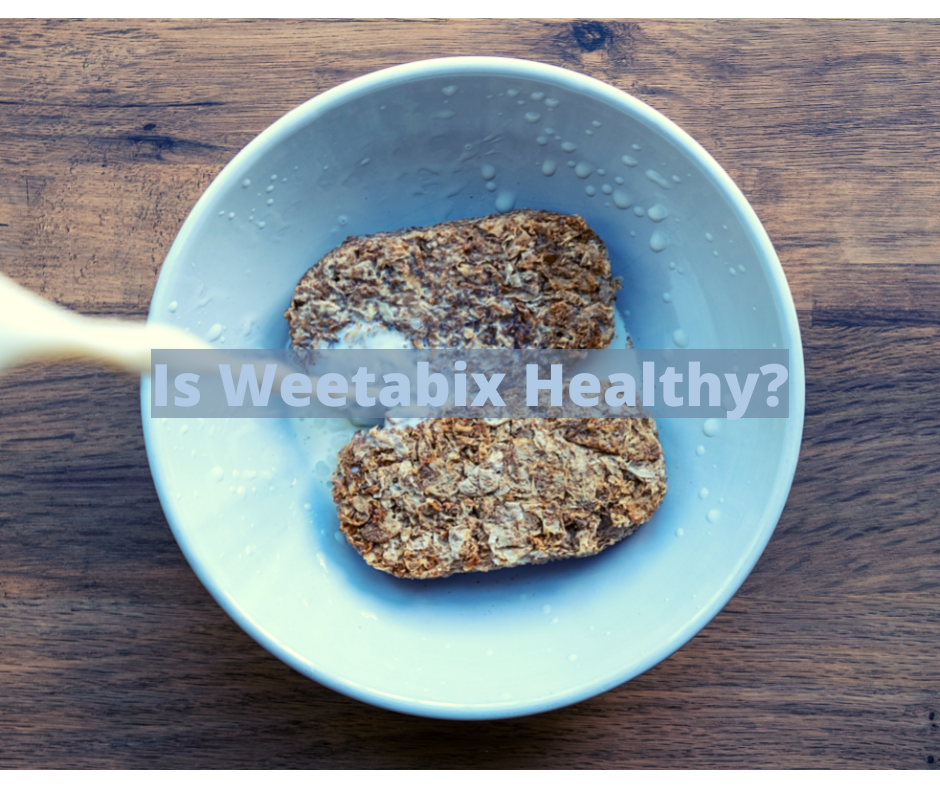
 Vegan3 months ago
Vegan3 months agoIs Weetabix Healthy? 14 Things You Should Know
-
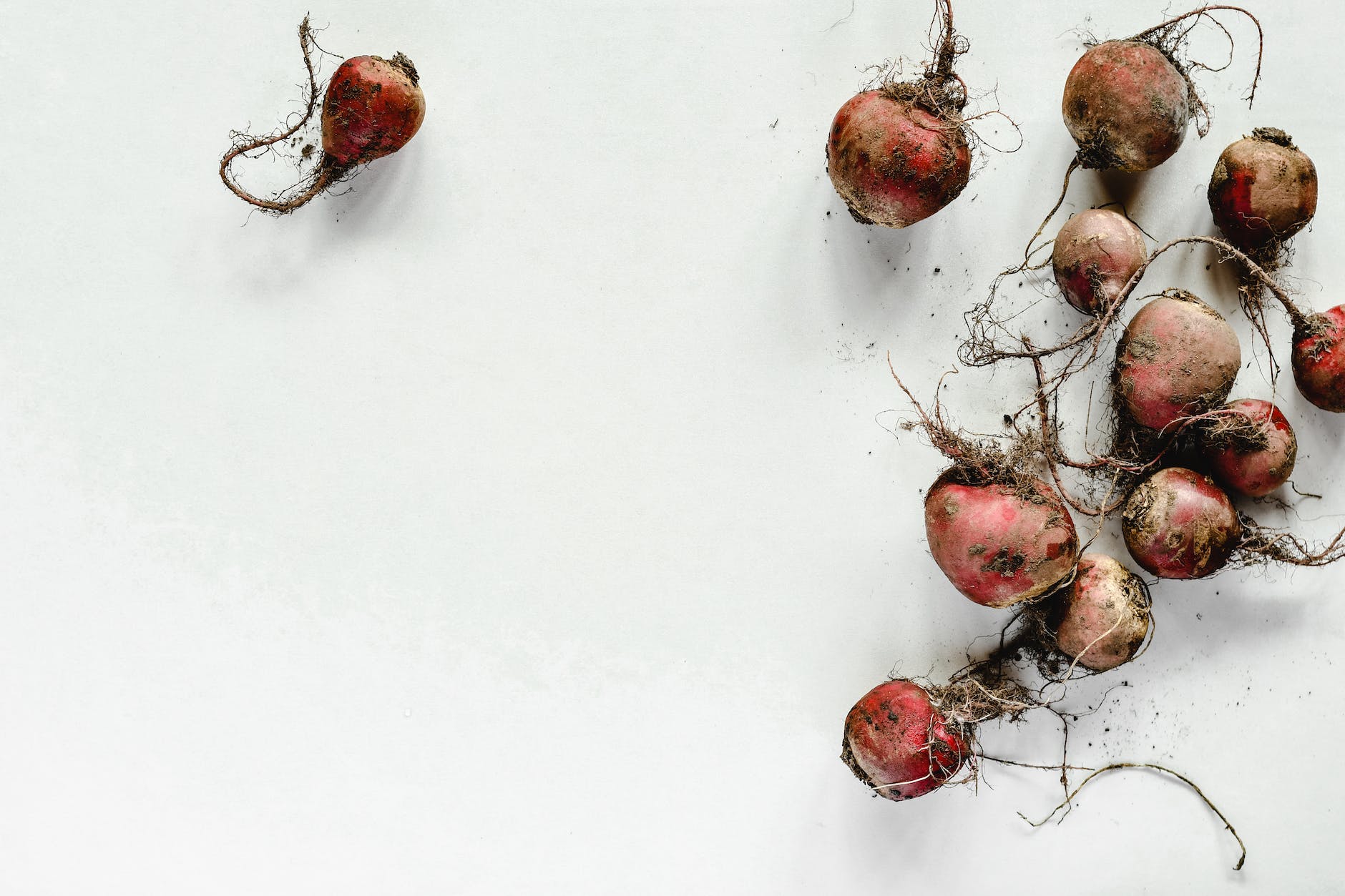
 Raw1 month ago
Raw1 month agoWhy Do Raw Beets Irritate My Throat?
-

 Beginners Guides1 month ago
Beginners Guides1 month agoIf Beets Are Soft Are They Bad?
-

 Vegan3 months ago
Vegan3 months agoIs Gatorade Zero Healthy? 33 Things You Should Know
-
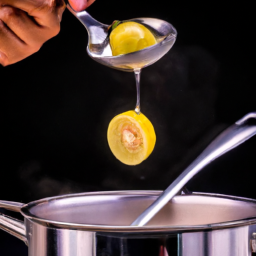
 Juice1 day ago
Juice1 day agoHow To Fix Too Much Lemon Juice In Soup
-
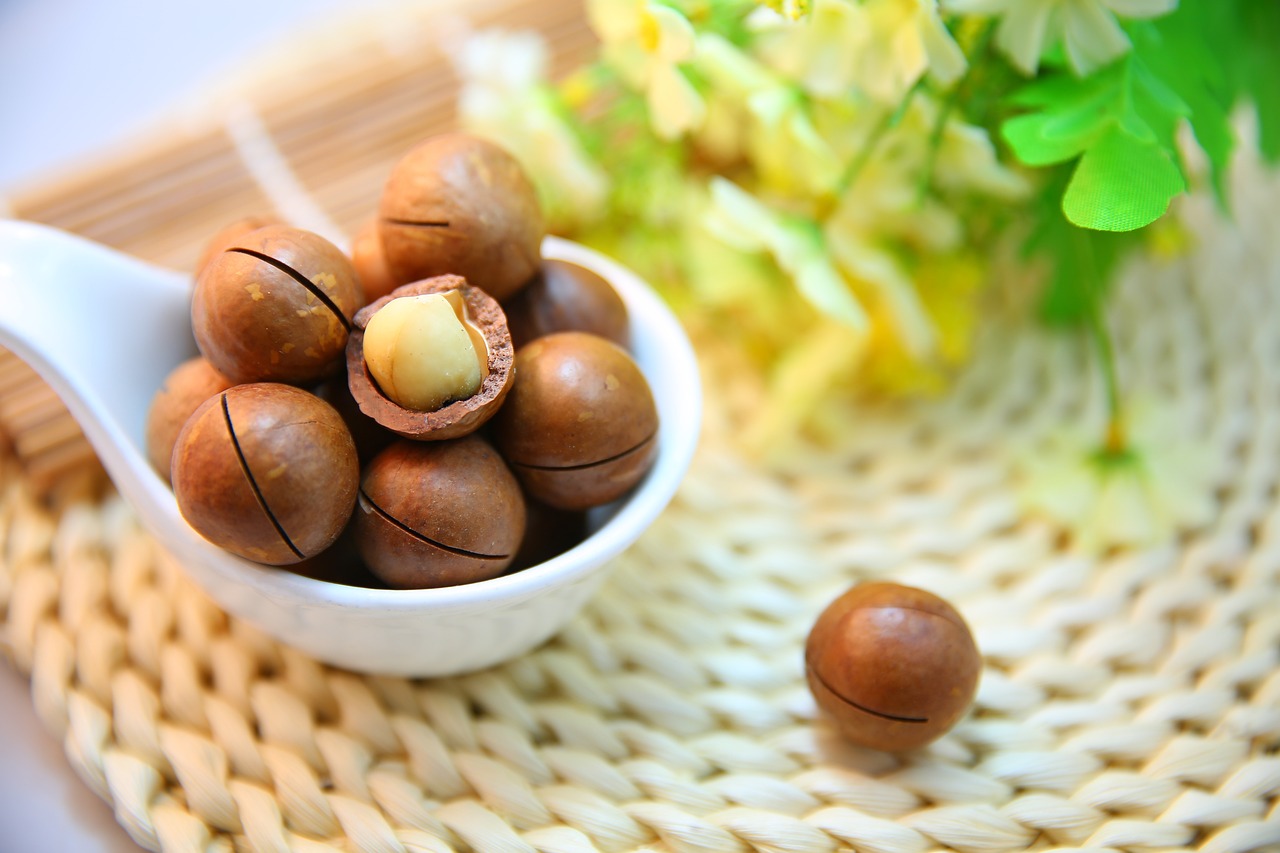
 Raw4 weeks ago
Raw4 weeks agoMacadamia Nuts – Which is Better Nutrition Raw Or Dry Roasted?
-

 Juice3 months ago
Juice3 months agoHow To Make Dmt Vape Juice
-

 Vegan3 months ago
Vegan3 months agoHow to Tell If Your Eggplant is Going Bad by Looking at the Color on the Inside









